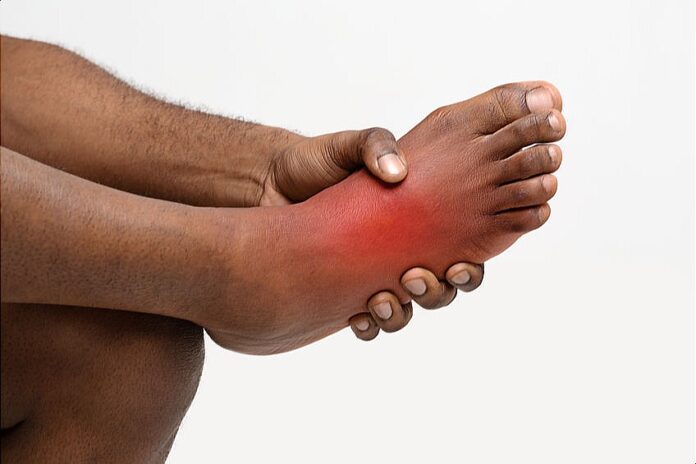Have a lump or bump on your foot? Whether it’s painful or not, it could potentially signal a serious condition. Foot problems are more prevalent among African Americans than in whites according to published studies. Foot and ankle surgeons warn it’s important to have any foot-related abnormality checked out, no matter its size or location on your foot.
“Whether your bump or lump is pea-sized or golf ball-sized, it should not go ignored. A proper diagnosis is key to proper treatment,” says Michael Coyer, DPM, FACFAS, a board-certified foot and ankle surgeon and a Fellow Member of the American College of Foot and Ankle Surgeons (ACFAS).
According to ACFAS, here’s what to know about some of the more common types of lumps found in the foot:
Ganglionic Cysts
This soft, fluid-filled sac is a non-cancerous bump that experts believe may arise from single or repetitive trauma. A ganglionic cyst can be caused by a leaking of jelly-like fluid from the “capsule” surrounding a joint or tendon and may be located on the top of the foot, near an ankle joint or even on the side of the foot. While the lump itself is often the only symptom experienced, you may feel tingling or burning if it’s touching a nerve, or a dull ache if it’s pressing against a tendon or joint. Often, ganglionic cysts cause irritation, making it difficult to wear shoes. Such cysts generally will not go away on their own and may return, even after being drained. Surgical removal by a foot and ankle surgeon can help prevent recurrence. However, if the cyst is not causing pain and doesn’t interfere with walking, your surgeon may simply monitor it over time.
Plantar Fibromas
Plantar fibromas are benign, fibrous, hard nodules found within the ligament of the foot and are especially common in the arch area on the bottom of the foot. These bumps tend to be less than an inch in diameter but can get larger over time. They can cause pain when shoes push against them or when you’re walking or standing barefoot. Steroid injections, physical therapy or orthotic devices may help relieve associated discomfort but will not make the fibroma disappear. While surgical removal is an option if pain persists following nonsurgical approaches, it’s important to know that recurrence can occur post-surgery, as can complications, such as a flattening of the arch or the development of hammertoes.
Haglund’s Deformity
Haglund’s deformity, sometimes called a “pump bump,” is a bony enlargement on the back of the heel. When it rubs against shoes — from high-heeled pumps to running shoes — the soft tissue near the Achilles tendon can become irritated. This often leads to painful bursitis, an inflammation of the fluid-filled sac between the tendon and bone. While certain foot structures are more prone to Haglund’s deformity, you can treat the condition and help prevent recurrence with appropriate footwear, arch supports, orthotic devices and stretching exercises. Physical therapy, icing and NSAIDs can also reduce inflammation.
Sometimes, Dr. Coyer notes, a bump is suspected of being cancerous. In this case, your foot and ankle surgeon will perform a biopsy and if it is indeed cancer, will perform surgery to remove the mass, working in tandem with an oncologist for cancer treatment.
For more information on foot bumps or to find a foot and ankle surgeon near you, visit FootHealthFacts.org, the American College of Foot and Ankle Surgeon’s patient education website.
“Remember, the sooner we’re able to properly evaluate your bump, the sooner you can have peace of mind and move forward with treatment,” says Dr. Coyer.











